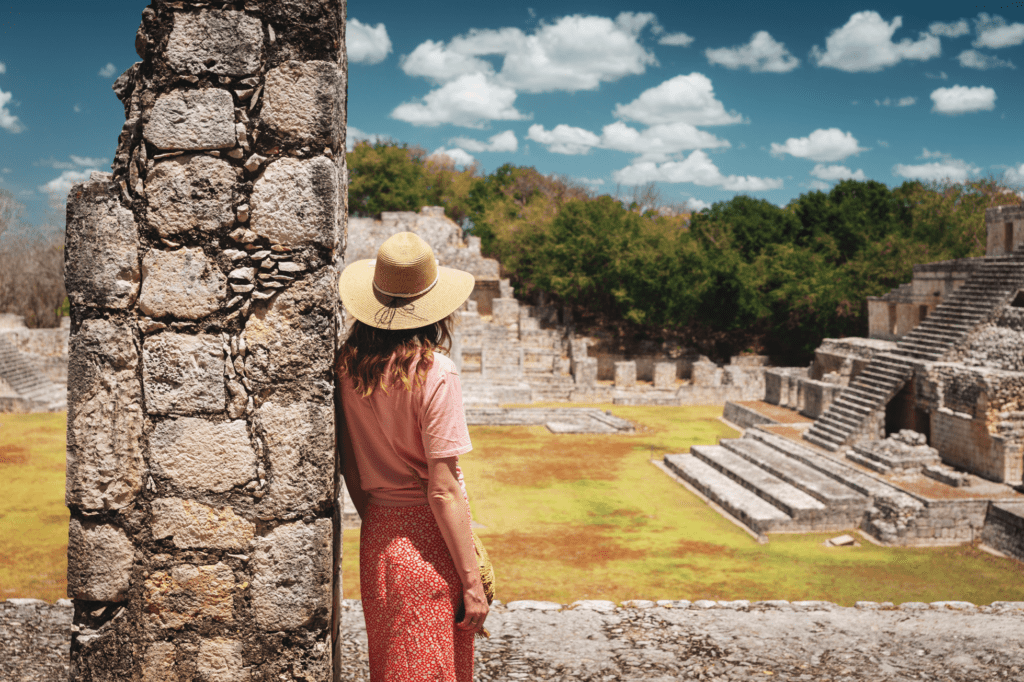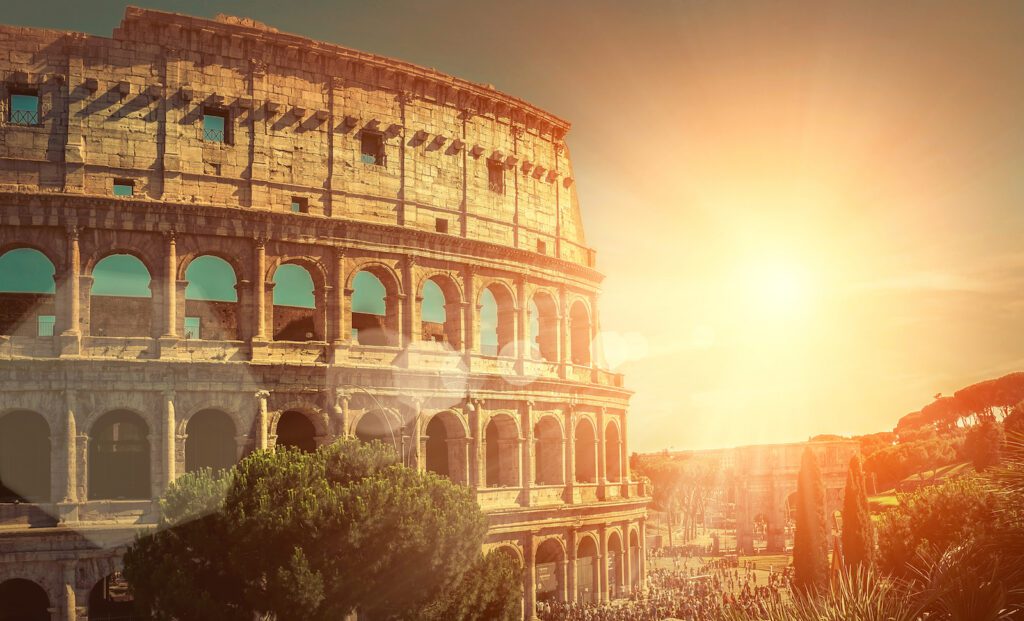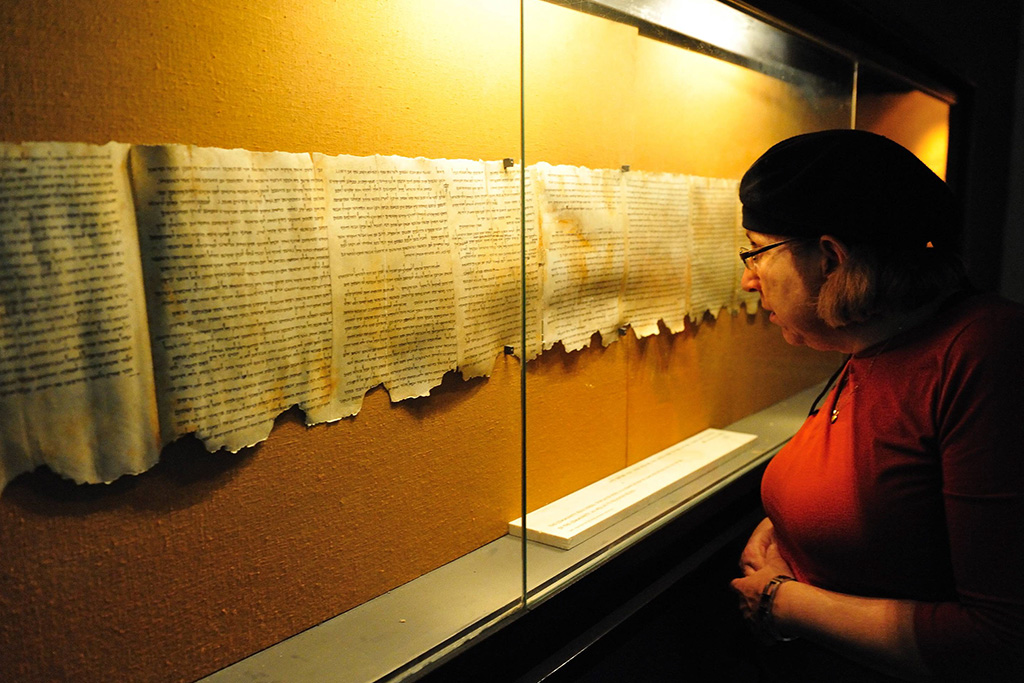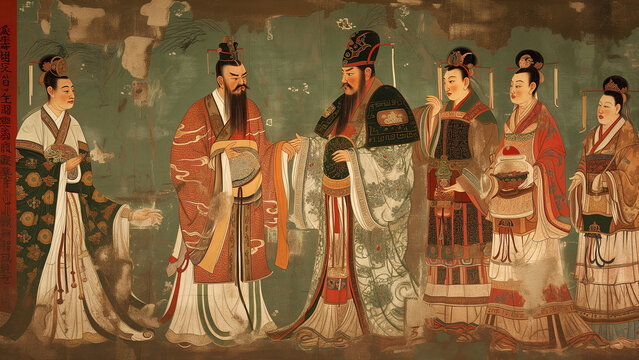
The wisdom of ancient civilizations is significantly important to our understanding of the evolution of our species. By exploring the rich tapestry of ancient worlds, we can learn valuable insights that challenge our modern perspectives and broaden our understanding of the human experience. In addition to the well-documented achievements, an intriguing range of mysteries and secrets has captured the imagination of scholars and the general public alike. Find out some of the most enduring ancient mysteries that still baffle us to this day. (Estimated reading time: 9 minutes)
“Civilization begins with order, grows with liberty and dies with chaos.”
– Will Durant
On November 4, 1922, British archaeologist Howard Carter enthusiastically recorded in his pocket diary, “First steps of tomb found.” The following day’s excavation in the Valley of the Kings, on the west bank of the Nile River, unveiled an intriguing entrance.
He promptly sent a telegram to Lord Carnarvon, who had been supporting his Egyptian antiquity investigations for years, stating, “At last have made wonderful discovery in Valley; a magnificent tomb with seals intact.”
The air was musty and hot, but this did not dissuade Carter and the rest of the explorers from drilling a hole in the plaster-filled doorway. The ancient secrets behind the wall beckoned to them, and there was no turning back.
Carter held up a candle to peer inside a tiny hole in the tomb’s doorway. Peering through, the light glinted on golden objects.
“Can you see anything?” his companions asked.
“Yes, wonderful things!” Carter replied enthusiastically.
Those were Howard Carter’s famous words as he peered into the treasure-filled tomb of Egyptian pharaoh Tutankhamun. This resting place of the “boy king” was hidden and sealed off from the world for 3000 years.
This team of intrepid archaeologists embarked on an extraordinary journey, braving treacherous terrain and overcoming countless obstacles in their quest. What they found within the hidden chambers was beyond their wildest dreams. Glittering treasures, intricate artifacts, and spellbinding stories awaited, shedding light on an enigmatic ruler shrouded in myth and legend.
The discovery of King Tut’s tomb was a watershed moment in the history of Egyptology, capturing the world’s imagination and forever changing our understanding of ancient Egyptian civilizations. The intact nature of Tutankhamun’s tomb, with its wealth of artifacts and well-preserved remains, provided an unprecedented glimpse into the lives and customs of the people from that era.
Tutankhamun’s reign, which spanned just over a decade in the 14th century BCE, had long been overshadowed by the more famous pharaohs of the New Kingdom, such as Ramses II and Amenhotep III. However, the discovery of his tomb shed new light on this enigmatic ruler, revealing him to be a significant figure in his own right.
The enduring wisdom of ancient civilizations like Egypt lies in their ability to challenge our preconceptions, inspire our curiosity, and expand the boundaries of our knowledge. By unearthing the artifacts and uncovering the mysteries that have long been buried, we gain a deeper appreciation for the wisdom of ancient civilizations. This can serve as a source of inspiration and a catalyst for our efforts to push the limit of human achievement.
Why study ancient civilizations?

Ancient civilizations are significantly important in our understanding of human history and the evolution of our species. These empires provide a distinct window into the past, shedding light on the remarkable achievements, intricate beliefs and ideologies, and elaborate social structures, some of which still impact us to this day.
By exploring the rich tapestry and wisdom of ancient civilizations, we can learn valuable insights that challenge our modern perspectives and broaden our understanding of the human experience. Examining these ancient cultures can open our eyes to how our ancestors grappled with the fundamental questions of existence, from the nature of the divine to the mysteries of the cosmos.
Ancient people also prove the ingenuity and resilience of the human spirit. We can develop a deeper appreciation for intellectual and creative prowess by delving into their artistic expressions, technological advancements, and architectural splendor. Their footprints on the sands of time can inspire us to push the boundaries of our understanding and spur us on to achieve greater feats in our present and future.
The pivotal role of archeological discoveries in studying ancient worlds
Our knowledge of the wisdom ancient civilizations is entwined with archaeology, where the detailed excavation and analysis of artifacts and ruins provide invaluable insights into the past. These archaeological discoveries, often unearthed after centuries or even millennia of being buried, offer a tangible connection to the lives and experiences of our ancestors.
From the iconic treasures of Tutankhamun’s tomb to the remarkably preserved Terracotta Army in China, each archaeological find serves as a window into these ancient societies’ cultural, technological, and social fabric. The careful examination of these artifacts and the analysis of their context and provenance allows us to piece together a more comprehensive understanding of the past.
However, archaeological discovery has its challenges. The fragile nature of many ancient artifacts, the difficulty of accessing remote or protected sites, and the painstaking work of cataloging and preserving these findings all contribute to the complexities of this field. Yet these challenges make each new finding all the more valuable.
The significance of archaeological discoveries extends beyond the accumulation of historical facts. These artifacts and ruins serve as a testament to our ancestors’ ingenuity, creativity, and resilience, inspiring us to reflect on the shared human experience that transcends the boundaries of time and space.
By excavating these treasures, we not only uncover the secrets of the past but also gain a deeper appreciation for the enduring spirit of human civilization.
The mysteries, secrets, and wisdom of ancient civilizations
In addition to the well-documented achievements of ancient civilizations, an intriguing range of mysteries and secrets have captured the imagination of scholars and the general public alike. These puzzles, shrouded in the mists of time, challenge our understanding and compel us to delve deeper into the past in search of answers.
Here are some of the most enduring mysteries that still baffle us to this day:
1. Architectural and engineering prowess.
Many people question how ancient people constructed such impressive architectural marvels with the limited technology and resources available to them. The colossal statues of Easter Island, intricate water management systems of the Indus Valley, and the delicately carved stone structures of Machu Picchu speak to the engineering genius of our ancestors.
The construction of the Egyptian pyramids, one of the seven wonders of the world, remains a subject of intense fascination and scholarly debate. The sheer scale and precision of these monumental structures, built without the aid of modern machinery, challenge our understanding of what was possible in the ancient world. The planning, sophisticated knowledge of mathematics and astronomy, and coordinated labor required to erect these architectural wonders are evidence of the extraordinary capabilities of the ancient Egyptians.
Similarly, the engineering marvels of the ancient world extend far beyond architecture. The Nazca Lines in Peru, a series of enigmatic geoglyphs etched into the desert landscape, continue to baffle scholars with their precise geometric patterns and the technological prowess required to create them.
The aqueducts and irrigation systems constructed by ancient civilizations, such as the Persians and the Romans, demonstrate a profound understanding of hydrology and the ability to harness natural resources for the benefit of their societies.
2. Ancient scripts and culture.

Deciphering ancient scripts and languages has long fascinated scholars, who strive to unlock the secrets hidden within these forms of communication. The Rosetta Stone, for example, played a pivotal role in our understanding of ancient Egyptian hieroglyphics, while the undeciphered Voynich Manuscript continues to perplex historians and linguists.
The cultural practices of ancient civilizations also offer a window into their values and perspectives. The artistic achievements of these societies, from the murals of Mesoamerica to the stunning sculptures of ancient Greece, not only captivate the senses but also reflect their creators’ deeper cultural aspirations. Studying these artifacts allows us to better understand how our ancestors navigated the complexities of their social and political landscapes.
3. Spiritual and cosmological.
The beliefs of ancient civilizations are also a source of wonder for the modern person. From the complex mythologies of the Aztecs to the intricate astronomical knowledge of the Mayans, these ancient belief systems offer a glimpse into the profound ways in which our ancestors sought to understand their place in the universe.
The religious and spiritual constructs of ancient civilizations often served as the foundation for their social and political structures, shaping their worldviews, customs, and modes of governance. The ancient Egyptians, for example, were deeply influenced by their belief in the divine nature of their rulers and the intricate pantheon of gods and goddesses that governed their understanding of the cosmos. Similarly, the Mayans’ sophisticated astronomical knowledge was closely intertwined with their religious practices as they sought to divine the will of the gods through the study of the heavens.
As we persist in uncovering the enigmas and hidden knowledge of past societies, we can question our assumptions and broaden the limits of human understanding. This endeavor fulfills our curiosity and has the potential to spark fresh paths of scientific exploration and cultural comprehension.
How have the wisdom of ancient civilizations contributed to modern times?
The legacy of ancient civilizations continues to resonate profoundly in our modern world, shaping the way we think, live, and interact with one another. The impact of these long-forgotten empires continues to impact our collective experience. Here are some areas where their legacy has left a deep imprint on our lives:
Law and governance
The ancient Greeks are widely recognized as the progenitors of Western philosophical thought. Their explorations of democracy, rationality, and the nature of the human experience continue to shape our political and social structures.
The Roman Empire’s contributions to the development of law, infrastructure, and administrative systems have also impacted how we organize and govern our modern societies.
Art and literature

Beyond politics and governance, the cultural and artistic achievements of ancient civilizations continue to captivate and inspire us. The breathtaking sculptures, intricate mosaics, and awe-inspiring architectural marvels of the ancient world still inspire countless artists and designers.
The enduring influence of ancient Greek and Roman art, from the graceful sculptures of the Parthenon to the architectural marvels of the Colosseum, can be seen in the aesthetic sensibilities and design principles that permeate our modern world.
In literature, the epic tales and mythological narratives of ancient civilizations have captivated the human imagination for millennia. From the Mesopotamian Epic of Gilgamesh to the Greek Odyssey, these timeless stories continue to be retold, reimagined, and adapted, serving as a testament to the universal themes and archetypes that resonate across cultures and time periods.
Technology and science
The technological and scientific advancements of ancient civilizations have also guided modern advancement. The ancient Egyptians’ mastery of mathematics and astronomy, for instance, laid the foundation for our modern understanding of the cosmos, while the Mesopotamians’ pioneering work in the development of writing systems and record-keeping continues to inform our contemporary practices. The Mayans are known for their advanced knowledge of astronomy and the creation of a sophisticated calendar system that still captivates scholars today.
Philosophy of the wisdom of ancient civilizations
The ancient civilizations of the world have bequeathed us a rich variety of ideas and intellectual traditions that continue to shape our understanding of the human condition. From the rationalist inquiries of the ancient Greeks to the profound spiritual and metaphysical contemplations of the ancient Chinese and Indian thinkers, these ancient philosophies have laid the foundation for our modern approaches to questions of ethics, epistemology, and the nature of existence.
As we continue to explore and engage with the timeless wisdom of ancient civilizations, we can gain a deeper understanding of the shared human experience that transcends the boundaries of time and space. By immersing ourselves in their eras, we can unlock valuable insights that inspire us to grapple with the fundamental questions of our existence and strive for a more profound and nuanced understanding of the world around us.
All my best on your journey,
Seline

Question for you: Which secrets of the ancient civilizations fascinate you the most, and why?
Did you like this post? Sign up below, and I’ll send you more awesome posts like this every week.

Have Your Say